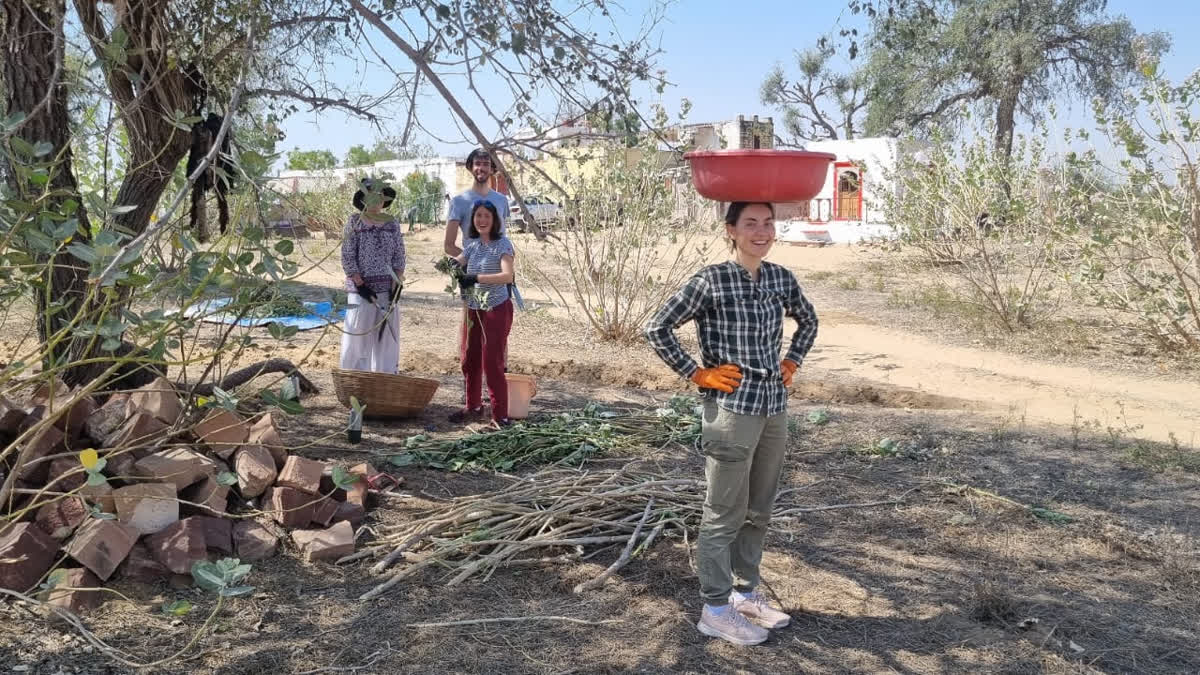Jodhpur (Rajasthan): In order to conserve the vegetation of Thar Desert and prevent migration of people in the region, four interns and a teacher of the Purpan School of Agricultural Engineering, France, in collaboration with NGO Sambhali Trust, are jointly cultivating traditional plants of Thar such as Khejadi, Kair Kumthiya among others extensively.
Interns Leo Binson, Camille Julaud, Capucin Arents, Alix Lemerle along with Tom Rave, a French history and geography teacher are part of this project.
Founder of Sambhali Trust, Govind Singh said that this project has begun on a 1,600 square meter farm. "We had two interns who stay here and conduct extensive research after finding out that the traditional vegetation of the desert has been shrinking. Biodiversity has been heavily affected and due to poor employment rates among villagers, migration rate is on a hike," he said.
Through this project, Singh said that the trust aims to cut down on the issue of migration and prove to the villagers the benefits of traditional vegetable farming.
Singh said that the initiative also aims to encourage local farmers to plant trees on their farms. "Our vegetation, trees and plants are extremely important for us. We will ensure that pesticides are not wasted. Harmful effects of climate change will be reduced and protection of biodiversity will be a major lookout in this project. This three to four-month long project will also work to promote healthy soils in the area," he added.
The project being conducted in the Setrava village, about 100 km away from Jodhpur, includes experts from institutions related to agriculture. Among the traditional trees and plants of Thar, the focus has currently been on Khejri, Kair and Kumthiya.
If the project turns out to be successful in conserving them, they can be grown commercially which in turn will provide employment and economic support to the villagers. The project will be reviewed after three to four months to ensure its success or failure.
Khejri is the lifeblood of Thar. It has also been given the status of being the 'state tree'. However, its population is on a downfall because it is being continuously felled by the villagers. It has multiple benefits as it provides both green and dry fodder for animals.
Not only that, its fruit is used as a Sangri vegetable. Dried Sangri vegetable is famous all over the country. Kair and Kumthiya are used along with dried sangri too. Dried Sangri is available in the market for Rs 1,000 to Rs 1,500 per kg, while Kair and Kumthia are sold for up to Rs 3,000 per kg depending on the quality.
Read More:



